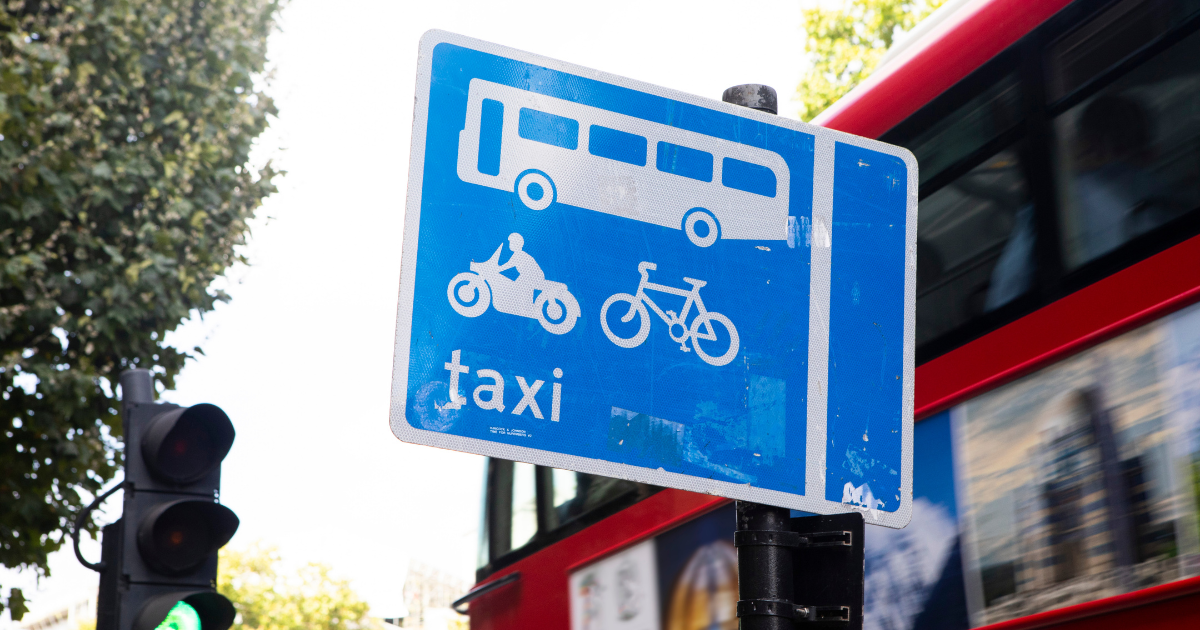
How to Navigate Bus Lanes as a Taxi Driver
A practical UK guide to bus lanes for taxi drivers, including rules, signage, penalties, and local authority differences.
Becoming a taxi driver can be a rewarding career, but it comes with its own unique set of challenges. Every day, taxi drivers spend long hours on the road, transporting passengers, navigating traffic, and keeping to tight schedules. Having the right taxi driver insurance is not just a legal requirement but a vital safeguard for your livelihood.
In this article, we will explain what taxi insurance is, why it is essential, and what you should consider when choosing the right cover. We will also explore the factors that influence policy costs, the difference between private hire and public taxi insurance, and answer some of the most common questions taxi drivers ask about their cover.
Taxi insurance, sometimes referred to as “hire and reward insurance”, is a specialist form of cover designed for drivers who transport fare-paying passengers. Unlike standard car insurance, which only covers personal use, taxi policies are tailored to the higher potential risks associated with professional driving.
At Collingwood, we understand that not every driver needs the same level of protection. That’s why we offer both short-term taxi insurance and annual taxi driver insurance, giving you flexibility depending on how you want to manage your length of cover.

Taxi drivers face risks that go beyond those of everyday motorists. From carrying multiple passengers daily to operating in busy city centres, insurance provides financial protection and peace of mind.
Here’s why insurance for taxi drivers is so important:
When comparing policies, it is important to think about more than just cost. Look for a policy that provides the right mix of protection for how you work.
Here are some key considerations:
| Factor | Why It Matters |
| Level of cover | Choose between Third Party Only, Third Party Fire & Theft, or Comprehensive. |
| Named or any driver cover | Decide whether your policy will cover just you or additional licensed drivers. |
| Personal use | Some policies allow personal use of your taxi, others do not. |
| Mileage limits | Taxi drivers often cover high mileage – check whether your policy includes unlimited mileage. |
| Extras | Add-ons like public liability, legal cover, or breakdown protection can be vital for drivers. |
It is impossible to analyse this dataset without considering the pandemic’s effect. In 2020–2021, when fewer tests were being conducted, the pass rate spiked above 50%, far higher than the long-term Just like standard motor insurance, the cost of taxi driver insurance varies depending on your circumstances. However, because taxi drivers are considered higher risk, policies tend to cost more. Factors influencing price include:

Although both fall under taxi insurance, the cover you need depends on the type of service you provide.
| Private Hire Insurance | Covers pre-booked journeys only – you cannot be hailed on the street. | Uber drivers, minicabs, app-based services. |
| Public Hire Insurance | Covers taxis that can pick up passengers without a booking. | Hackney carriages, black cabs, city taxis. |
Yes. Uber drivers are classed as private hire drivers and must have private hire taxi insurance in place. Standard car insurance or business use policies do not cover transporting fare-paying passengers. Without proper cover, you could risk claims being rejected.
Taxi drivers may also want to consider optional extras, such as:
While insurance for taxi drivers is usually more expensive than standard policies, there are ways to keep premiums manageable:
Taxi insurance is essential protection for your passengers, your vehicle, and your income. Understanding the differences between private hire and public hire policies, knowing what factors affect cost, and choosing the right level of cover will help you make an informed decision.
At Collingwood, we offer flexible short-term and annual taxi driver insurance policies tailored to the way you work. Whether you are a part-time Uber driver or a full-time Hackney carriage driver, the right cover can give you peace of mind every time you get behind the wheel.
Commonly asked questions about taxi insurance
Taxi insurance is specialist cover for drivers who carry fare-paying passengers, also known as hire and reward insurance.
Yes. Uber drivers must hold private hire taxi insurance to carry passengers legally.
No. Standard motor insurance does not cover fare-paying passengers.
Some policies include it as standard, while others offer it as an optional add-on.
Some policies allow personal use, but it depends on the provider and local authority rules.
Costs vary depending on factors such as vehicle type, mileage, driving experience, and location.
It is not legally required but strongly recommended since your vehicle is your livelihood.
Private hire covers pre-booked journeys (e.g. Uber), while public hire covers taxis that can pick up passengers directly from the street or taxi ranks.
You will be logged out in seconds. Do you want to stay signed in?